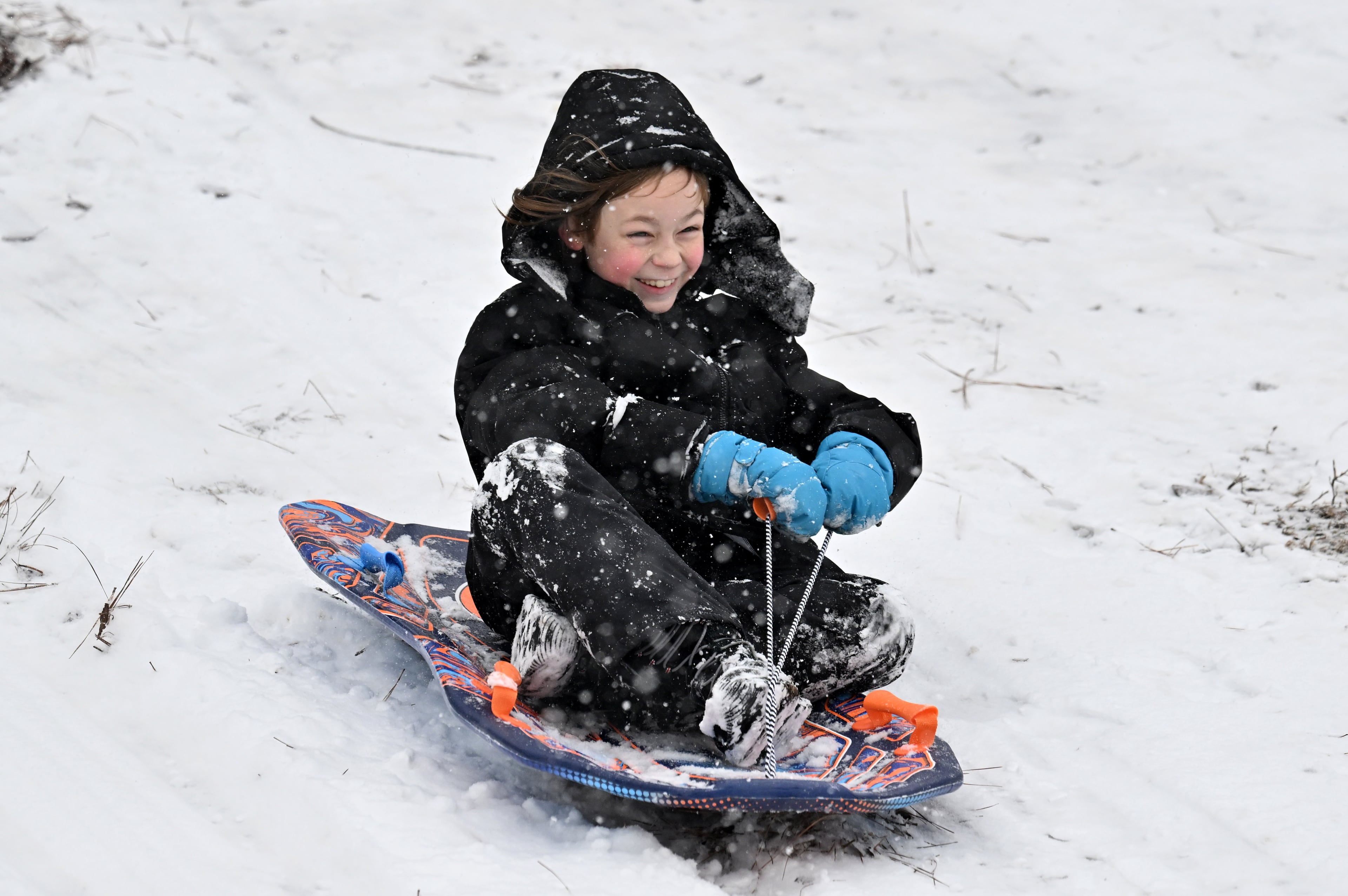Healthy snacks to keep you energized when working out in any weather

This latest heat wave truly was something else. Atlanta hit 100 degrees last month — a first for the city since June 26, 2024. Statewide heat advisories were not hard to come by, covering nearly the whole state.
Things have cooled down since, but for those spending time outdoors it begs the question: How do you keep Georgia’s weather from sapping your energy? From heat-related summer fatigue to exercising outside in the cold winter, there’s something that can help Georgia exercisers through any weather: snacks.
Registered dietitian Jennifer Frediani, Ph.D., is an Emory University professor and researcher that specializes in diabetes, weight and blood glucose. The Atlanta Journal-Constitution spoke with Frediani to figure out exactly why it’s important for people to be wary of their blood sugar when spending time outdoors.
Dehydrated or low blood sugar?
If someone hasn’t eaten anything before exercising, the physical activity and heat could lead to issues with hypoglycemia — also known as low blood sugar — even in healthy people, according to the expert. For those suffering from diabetes, it’s a different risk altogether.
“It could affect it in one of two ways,” she said, when asked about the heat’s effect on blood sugar. It effects nondiabetics and diabetics differently. When a nondiabetic exercises, for instance, glucose levels go down, she explained. Meanwhile, being in the heat also improves your insulin sensitivity.
“That kind of combination could drop your blood sugar a little bit lower, especially in people that are kind of prone to have hypoglycemia and be on the low side,” Frediani explained.
“If you have somebody with diabetes, either Type 1 or Type 2, that actually has almost the opposite effect because it can raise your blood sugar, because of the dehydration cycle,” she said, adding that high blood sugar leads to more urination which causes you to be more dehydrated.
But how do you know it’s not dehydration you’re suffering from, rather than poor blood sugar?
“I would kind of look at, how thirsty are you? Are you sweating?” Frediani said. “Heat illness isn’t a joke, so you want to make sure that’s not what’s going on.”
According to the Atlanta-based Centers for Disease Control and Prevention, symptoms of your body overheating include muscle cramping, heavy sweating, shortness of breath, dizziness, headaches, weakness and nausea. The CDC advises anyone spending time in the heat to stay hydrated. Carry a water bottle, drink it and refill it throughout the day and limit beverages high in sugars, sodium, caffeine and alcohol.
“You’ll get clammy,” Frediani said, explaining the signs of heat illness. “You may actually feel cold.” Other symptoms include feeling lightheaded.
“It could be dehydration and heat on your way to heat illness, or it could be blood sugar. But if you know that you haven’t eaten and you’re exercising, it wouldn’t hurt to eat something kind of sweet, easy to digest carbohydrates.”
Beat the weather with snacks
Not all snacks are created equal. If you want to combat poor blood sugar for a big workout, then you’ll want to fuel up on carbohydrates.
“It would be beneficial, if you can, to eat a carb snack before you go,” Frediani said. “And that’s kind of true no matter what the weather is.” She suggested fibrous snacks, like a granola bar, whole wheat crackers or whole wheat toast. Other high-fiber snacks include apples, chickpeas, edamame, almonds and kale.
“We get our main source of energy from the glucose in our blood. Once that’s gone, then we start pulling from muscle and liver, and then we can switch to fat even later if it’s an endurance exercise.”
Whole wheat and fiber nutrients are king, she said, but you don’t have to overdo it.
“It doesn’t have to be a lot,” she said. “Five or six crackers, one piece of toast — it doesn’t have to be a lot. And then after you exercise, you want to replenish. So you want to have a protein and a carb together. The protein is for muscle recovery. It doesn’t really matter what exercise you’re doing, you’re gonna break down muscle.”
As little as 8 or 9 grams of protein would do. The best recovery drink? Chocolate milk, “because it has the perfect balance between sugar and protein.” Other high protein snacks are cottage cheese, Greek yogurt and eggs.
When exercising, even in cool weather like Georgia is finally starting to see this summer, you still want to ensure your blood sugar is at a healthy level. Every season has its costs and benefits.
Cool weather might encourage more exercise, but the exercise itself affects blood sugar. The winter cold, according to the CDC, can spike blood sugar as well. Diabetics adjust their diets to better stabilize their blood sugar levels, and it’s a practice Frediani said can benefit anyone working out outdoors.



